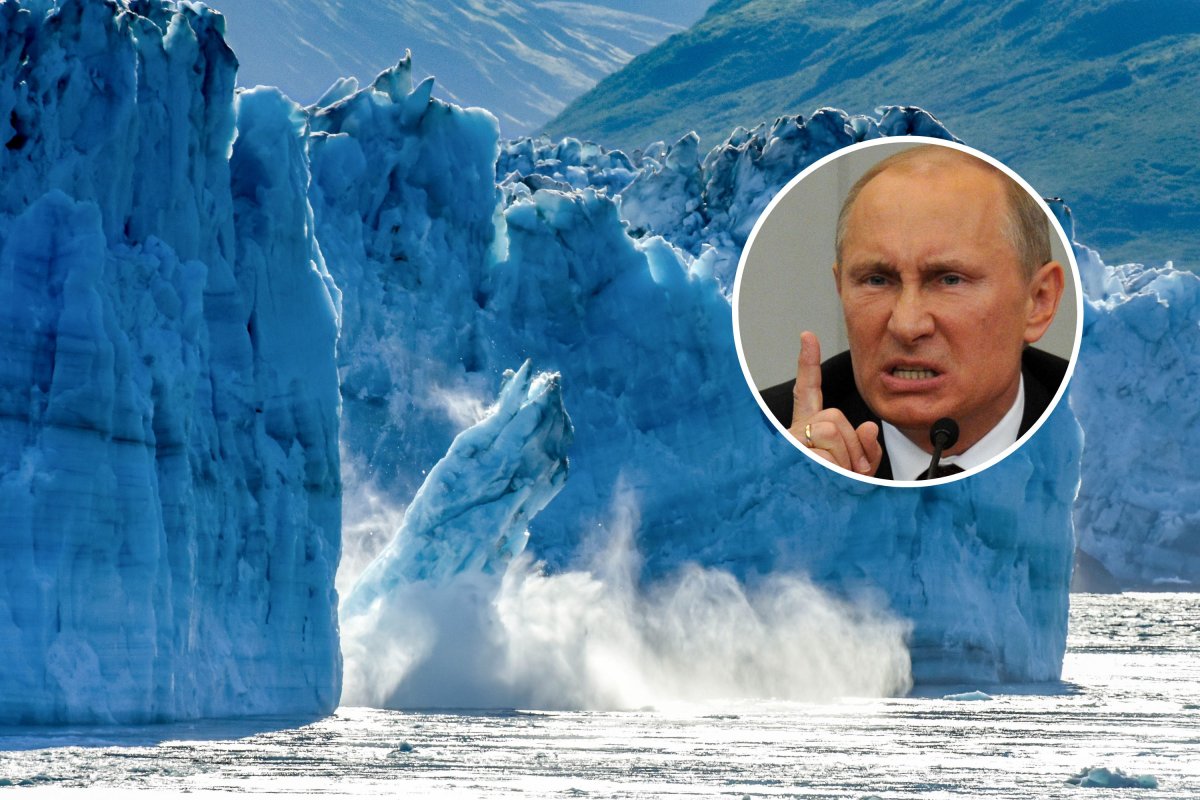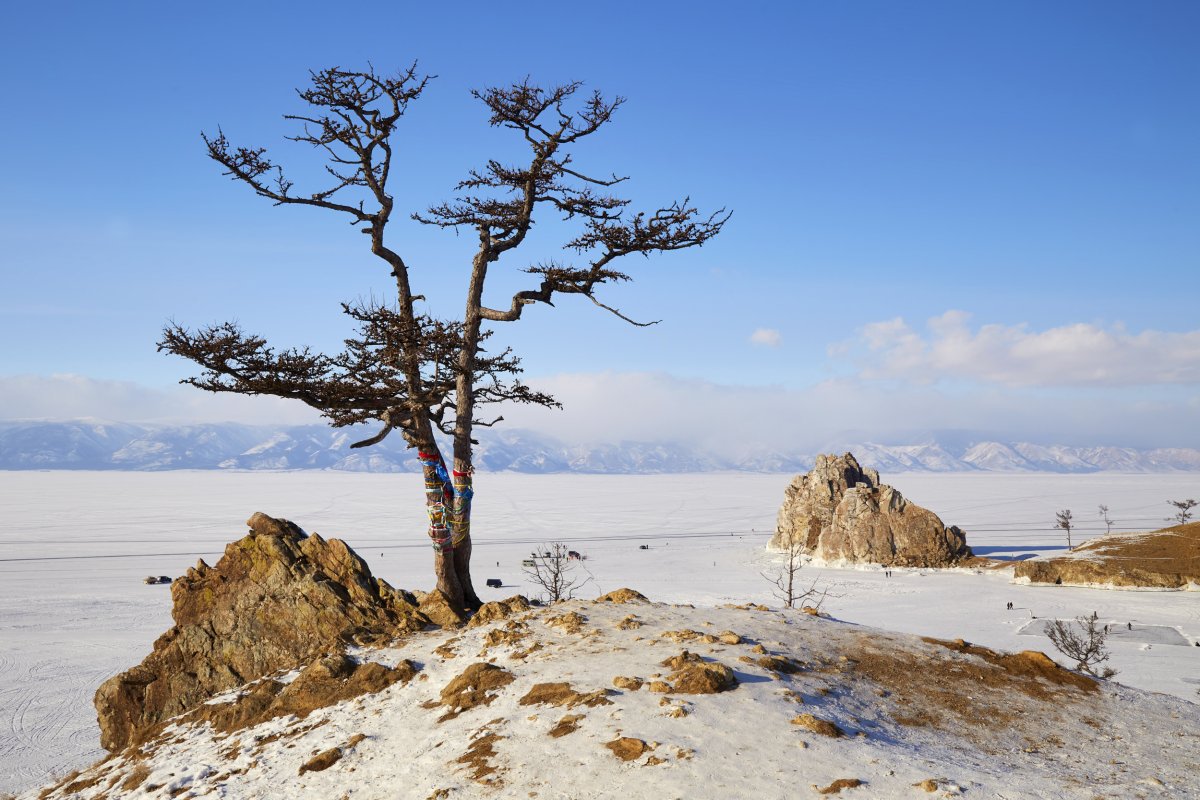The study of how climate change has affected the Arctic is being hampered due to missing data resulting from the Russian invasion of Ukraine.
Since the start of the conflict in February 2022, no data has been released from Russian stations in the Arctic, according to a new paper in the journal Nature Climate Change.
"Our findings indicate a pre-existing gap in the knowledge used to track conditions in the Arctic and highlight that the ability to track and project Arctic change has further deteriorated as a result of the Russian attack on Ukraine," Efrén López-Blanco, study author and Arctic ecosystem ecology researcher at Aarhus University, told Newsweek.

The eight countries with territory within the Arctic Circle include Norway, Sweden, Finland, Russia, the United States (Alaska), Canada, Denmark (Greenland), and Iceland, of which Russia is the largest.
These countries comprise the Arctic Council, an intergovernmental forum designed to coordinate activities and research across the Arctic. The Arctic Council was paused after the invasion of Ukraine and has only recently resumed without the input of Russia.
International scientists have, therefore, been missing data from the Russian section of the Arctic regarding annual average temperature, total rain, snow depth, soil moisture, vegetation, biomass and soil carbon—hampering a balanced analysis of climate change.
"In our study, we benchmarked the Arctic representativeness of the largest high-latitude research station network, INTERACT network. INTERACT has 94 stations, of which 21 are in Russia. However, since we focused on latitudes above 59° N and excluded the Greenland Ice Sheet, we ended up using 60 INTERACT sites and 17 from Russia," López-Blanco said.
This will make it more difficult to quantify the future of climate change across the region, the researchers explained.
"While many of the key indicators of Arctic climate change and climate-induced responses can be estimated remotely, much of the understanding of Arctic change is based on in situ data measured on the ground at research stations," the authors wrote in the paper.
"As ground-based observations that form the basis for assessments of the region's state will now come mainly from the non-Russian parts of the Arctic, the overall ability to monitor the status and trajectory of the Arctic biome may be severely limited over the foreseeable future."
The study of how the Arctic Circle is changing is crucially important, as the region is warming at between two to four times the average global rate.
The researchers estimate that the exclusion of Russian data has amplified a bias in climate forecasting in the Arctic across some ecosystem variables, one that was already present even when all Russian stations were included in the dataset.
"In our study, we found that the INTERACT network, even accounting for the Russian research stations, has biases in representing key ecosystem conditions across the entire Arctic domain. For example, INTERACT stations are mainly located in slightly warmer and wetter Arctic regions with deeper snowpacks. These stations also have lower vegetation biomass and soil carbon," López-Blanco said.
"Excluding Russian stations from INTERACT significantly increases biases in key ecosystem variables, therefore decreasing our ability to describe Arctic changes accurately. For example, the loss of Siberian research stations may be particularly detrimental for the ability to track global responses to climate change such as thawing permafrost, shifts in biodiversity, and carbon dynamics."

The authors suggest that this bias may have originated out of the locations of the stations gathering the data, as some are situated in Arctic areas that are warmer and wetter, with low biomass and deeper snowpacks.
And this bias only increases when the Russian stations—such as those in the taiga forests of Siberia—are removed from the data altogether.
The researchers hope that their paper will highlight the importance of distributing research stations across the Arctic region, as well as how the Russian invasion of Ukraine has only widened our knowledge gap of how the Arctic is changing with the climate.
"I think our approach can be used to further synthesize the state of knowledge quantifying potential biases and identify gaps to guide empirical studies," López-Blanco said.
"For example, we could inform station managers about which variables and/or disciplines can be more ecologically relevant, other researchers about which variables should be measured in-situ or are particularly miss-represented, or policymakers to initiate well-informed management and conservation initiatives that would help mitigate some of the negative consequences and risks exposed by climate change."
Do you have a tip on a science story that Newsweek should be covering? Do you have a question about the Arctic? Let us know via science@newsweek.com.
Update 01/23/24, 11:52 a.m. ET: This article was updated with comment from Efrén López-Blanco.
Uncommon Knowledge
Newsweek is committed to challenging conventional wisdom and finding connections in the search for common ground.
Newsweek is committed to challenging conventional wisdom and finding connections in the search for common ground.
About the writer
Jess Thomson is a Newsweek Science Reporter based in London UK. Her focus is reporting on science, technology and healthcare. ... Read more
To read how Newsweek uses AI as a newsroom tool, Click here.






